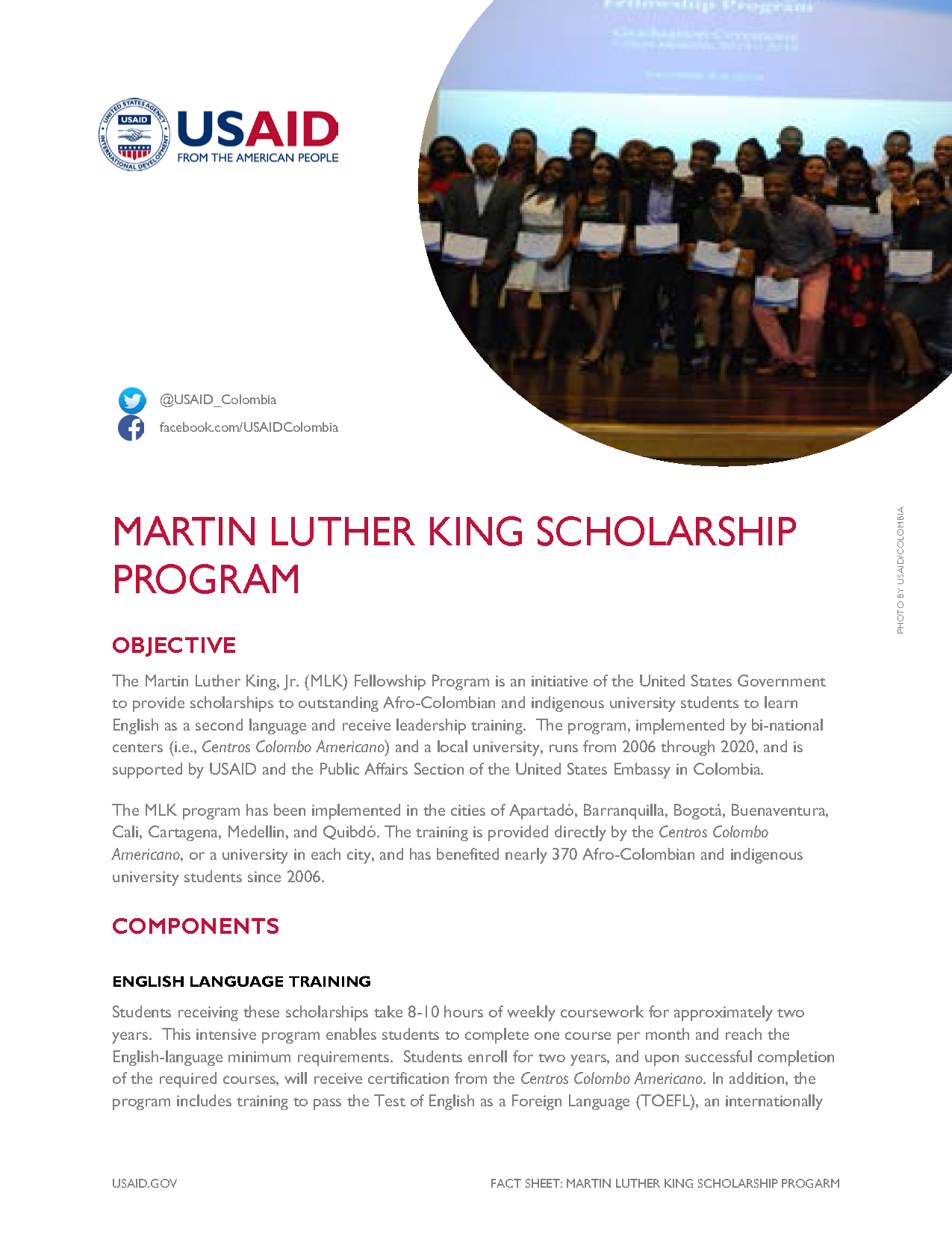Speeches Shim
OBJECTIVE
The Martin Luther King, Jr. (MLK) Fellowship Program is an initiative of the United States Government to provide scholarships to outstanding Afro-Colombian and indigenous university students to learn English as a second language and receive leadership training. The program, implemented by bi-national centers (i.e., Centros Colombo Americano) and a local university, runs from 2006 through 2020, and is supported by USAID and the Public Affairs Section of the United States Embassy in Colombia.
The MLK program has been implemented in the cities of Apartadó, Barranquilla, Bogotá, Buenaventura, Cali, Cartagena, Medellin, and Quibdó. The training is provided directly by the Centros Colombo Americano, or a university in each city, and has benefited nearly 370 Afro-Colombian and indigenous university students since 2006.
COMPONENTS
English Language Training
Students receiving these scholarships take 8-10 hours of weekly coursework for approximately two years. This intensive program enables students to complete one course per month and reach the English-language minimum requirements. Students enroll for two years, and upon successful completion of the required courses, will receive certification from the Centros Colombo Americano. In addition, the program includes training to pass the Test of English as a Foreign Language (TOEFL), an internationally recognized English test. TOEFL enhances the competitiveness of these students to apply for graduate education overseas.
Leadership Training
A second component of the program is leadership development. This is implemented through an international speaker series, in which experts help to build leadership skills, self-confidence, a strong sense of identity, and competency to influence change in their communities, with the goal of enabling Afro-Colombian and indigenous students reach their full potential. The Centros Colombo Americano also promote social responsibility by organizing discussion topics on social, economic, political, and cultural contexts; heritage identity; self-awareness; ethics; self-esteem; and team work.
RESULTS
- Supported nearly 370 MLK fellows as of December 2016.
- Will support another 380 MLK fellows between 2017 and 2020.
- Fellows around the country have become more involved in social projects assisting vulnerable communities.


Comment
Make a general inquiry or suggest an improvement.